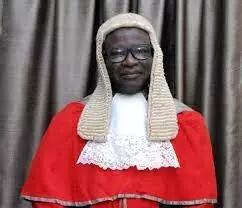Electronic recording of confessional statements is a mandatory obligation, says ex-judge

A former judge of the Kogi High Court, Justice Alaba Omolaye-Ajileye, has said that electronic recording of confessional statements of suspects during criminal investigation in an audio-visual format is a mandatory obligation.
Omolaye-Ajileye made this known during the 2024 edition of the 6th Annual Criminal Law Review Conference (ACLRC) organised by the Rule of Law Development Foundation (RLDF) on Wednesday in Abuja.
He noted that such recordings would reduce the number of trials within trials and also reduce the duration of cases in courts.
“Confessional statements are crucial components of criminal trials.
“The confessional statement of a defendant, if voluntarily made, is of great evidential value in the dispensation of criminal justice.
“It is regarded as the best evidence in a criminal trial, which can ease the stress of trials within trials.
“If you have recorded evidence and a legal practitioner is present, then that statement should be legally admitted.”.
He added that there is no need for a studio establishment as most people have smart phones and can take evidenced records of the confessional statements.
Also speaking, DCP Simon Lough, SAN, Head of the Nigeria Police Force Legal Chamber, said Sections 15 and 17 of the Administration of Criminal Justice Act ensure that evidence of confessional statements recorded is admitted without the need for trial within trial.
“Therefore, to reduce the long-term stress of trial within trials, confessional evidence statements will make things easier.
“It is highly commendable and supported for every state to adopt it so as to ensure that justice is served.
He urged the senior officers to ensure that the provisions of Section 15 and Section 17 are complied with.
Supreme News reports that in most court cases, once an accused raises an objection that a statement is taken forcefully, a trial within trial must be conducted.
Supreme News reports that the Supreme Court, in a landmark ruling on Sept. 24, established that law enforcement agencies must electronically record a suspect’s confessional statement in an audio-visual format during criminal investigations.
The case of Federal Republic of Nigeria (F.R.N.) v. Akaeze [2024] 12 NWLR (Pt. 1951) 1 has underscored the mandatory nature of this requirement, in accordance with sections 15(4) and 17(1) & (2) of the Administration of Criminal Justice Act 2015 (ACJA).
This decision leaves no room for discretion—a failure to comply renders the confessional statement inadmissible in court.



